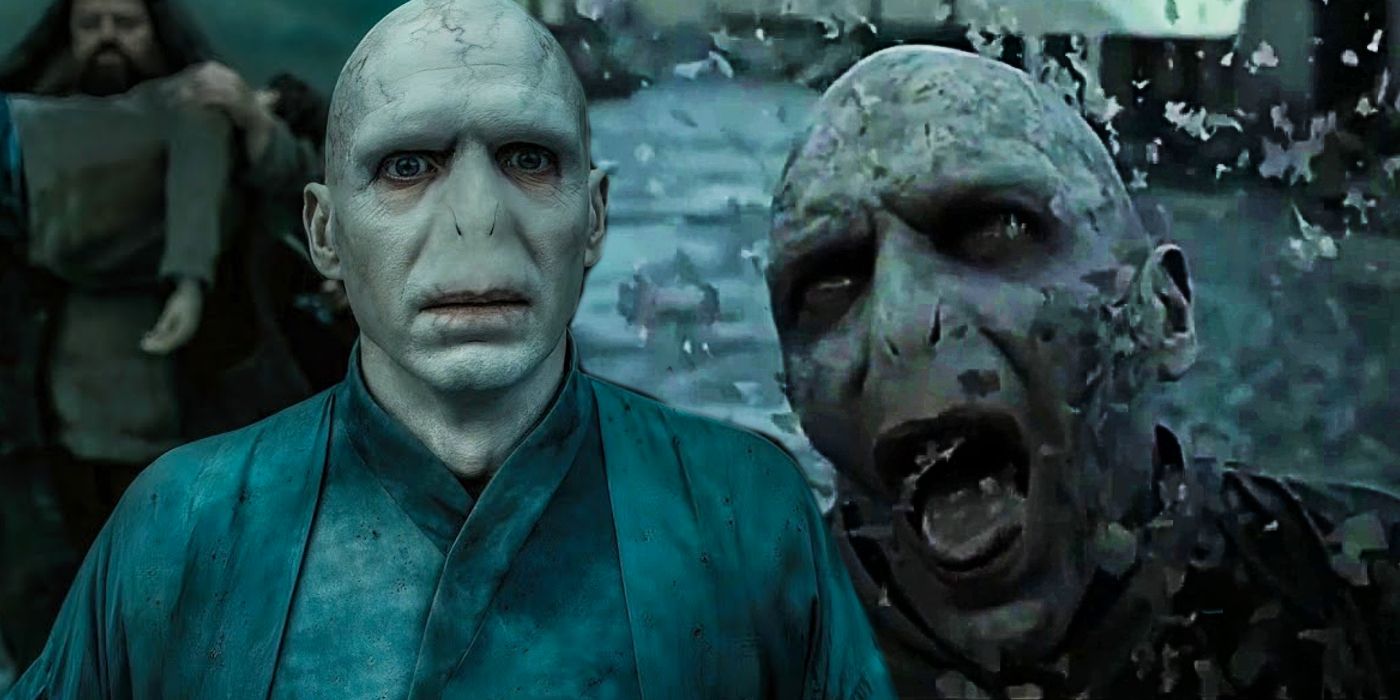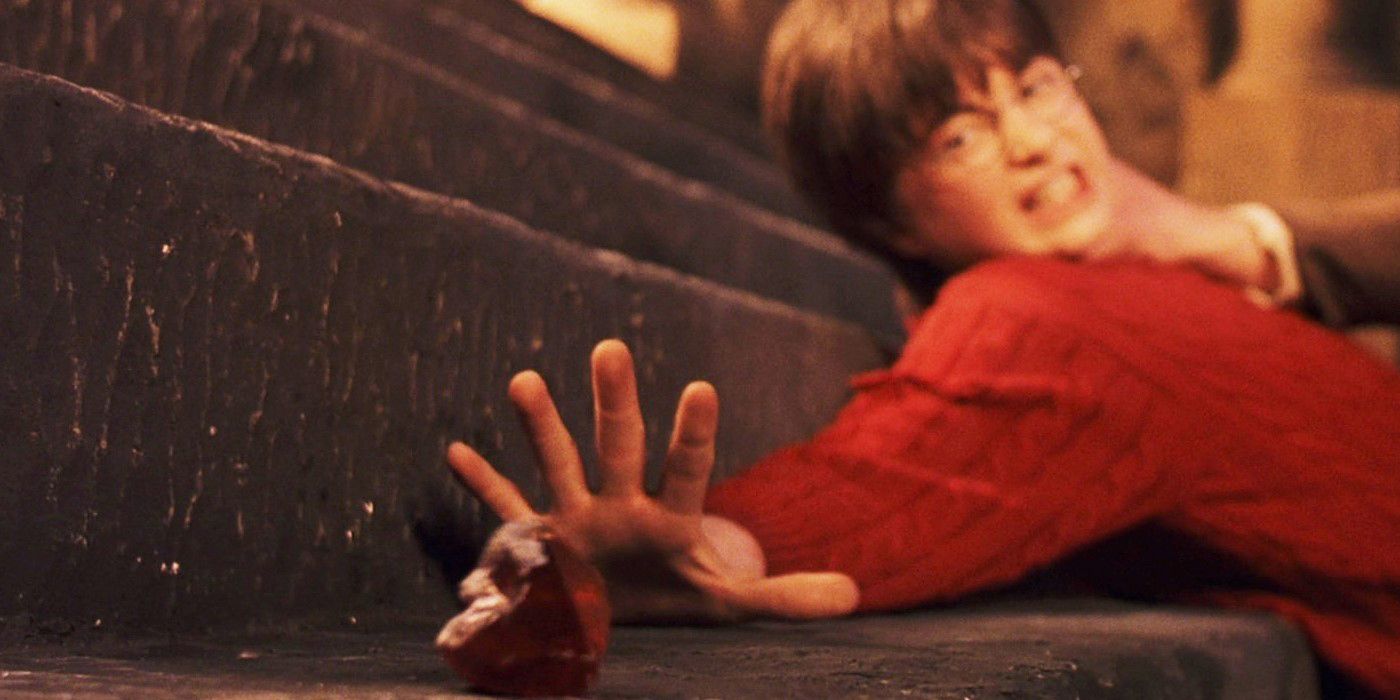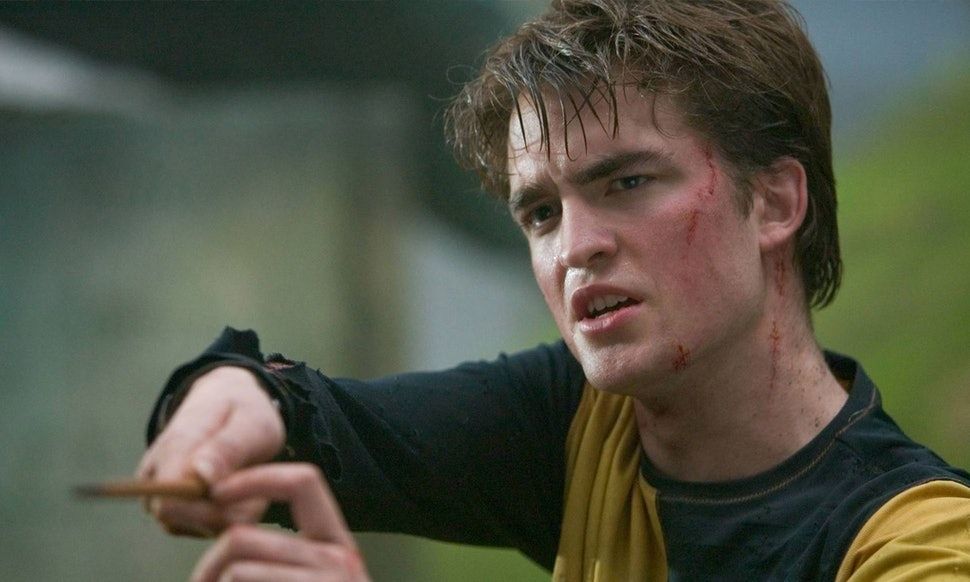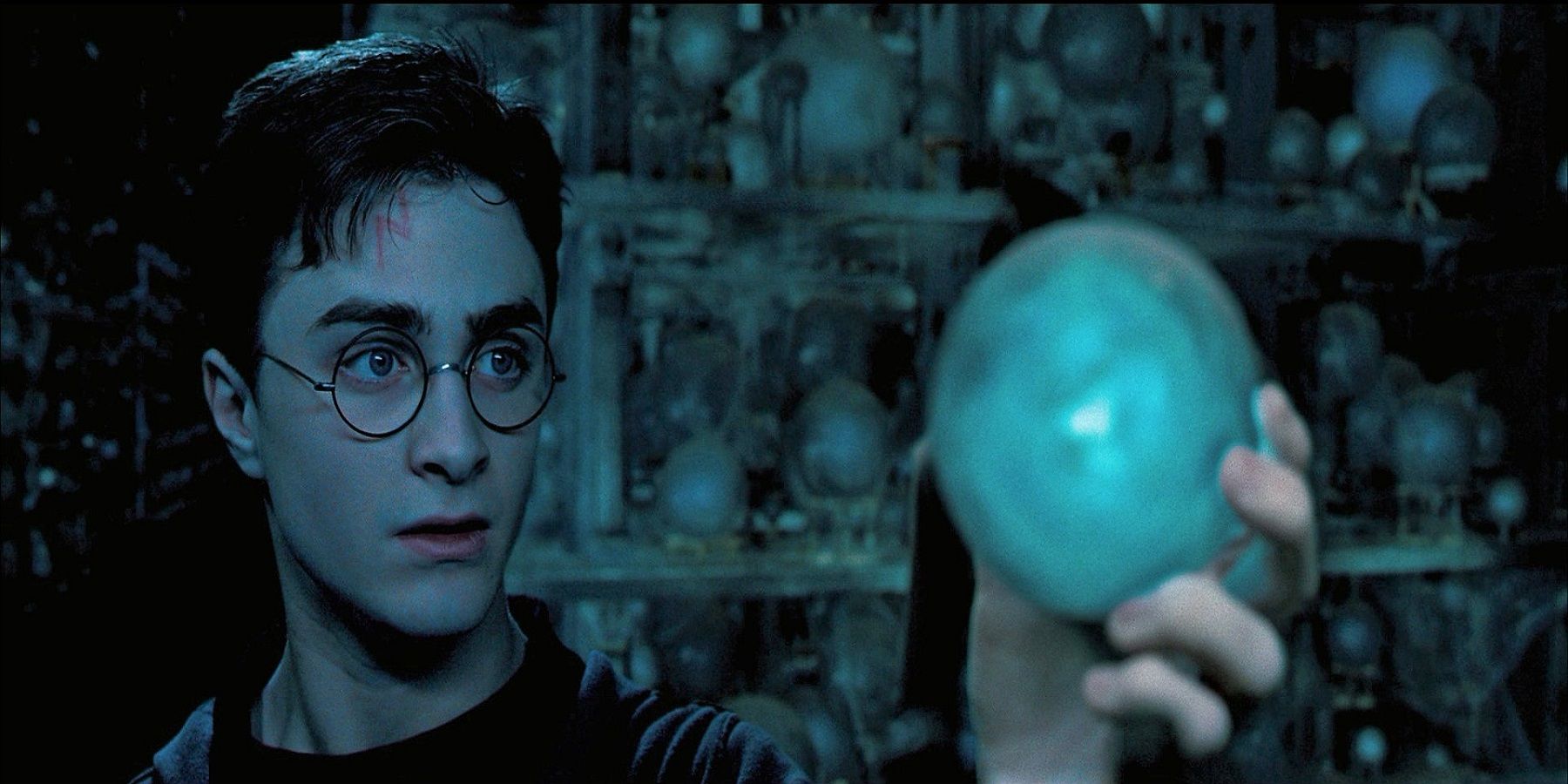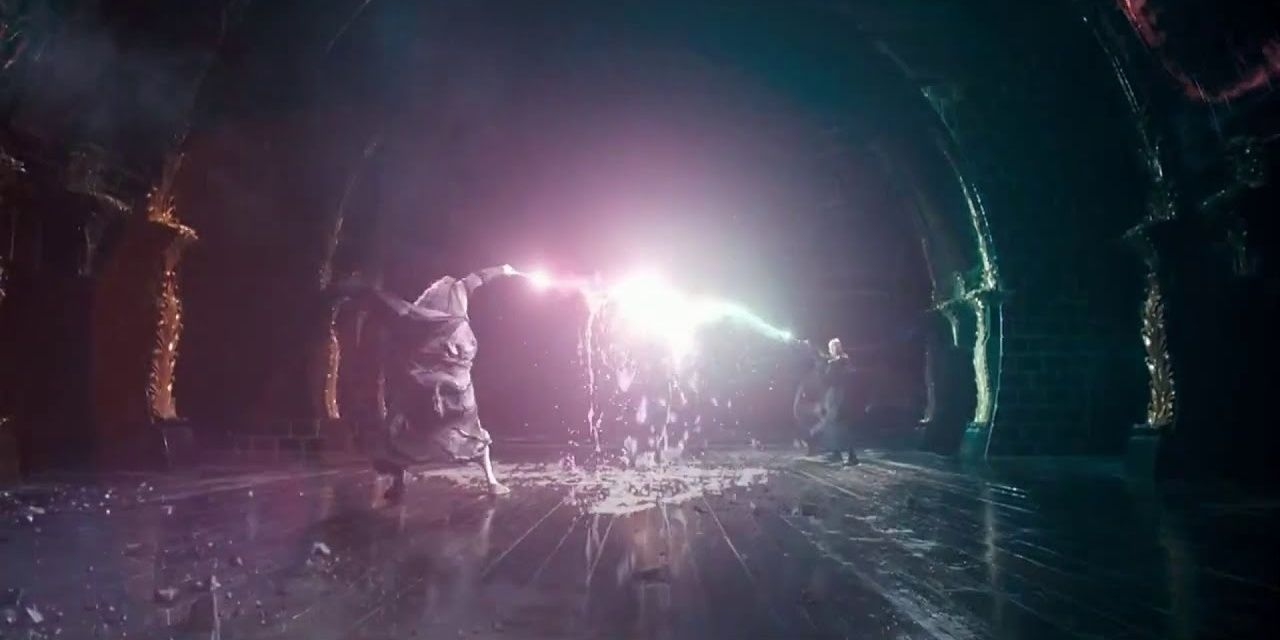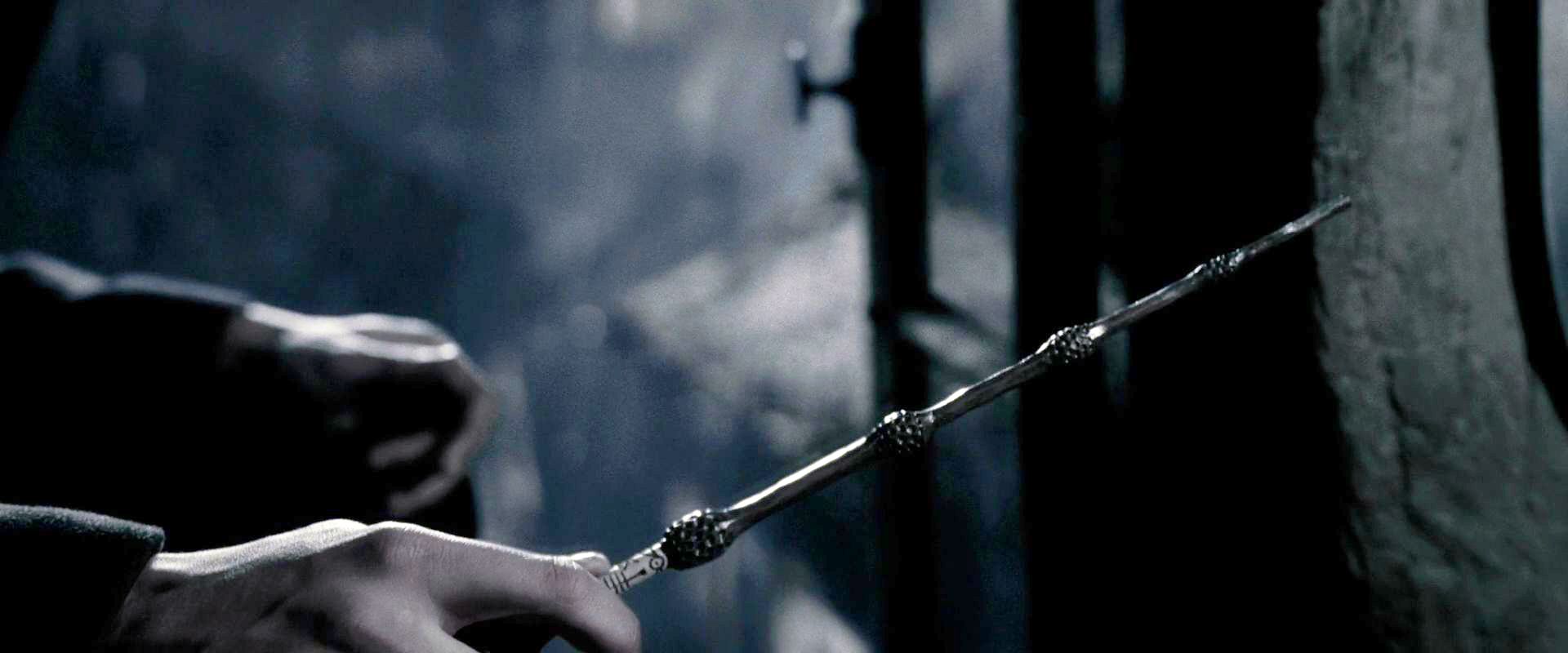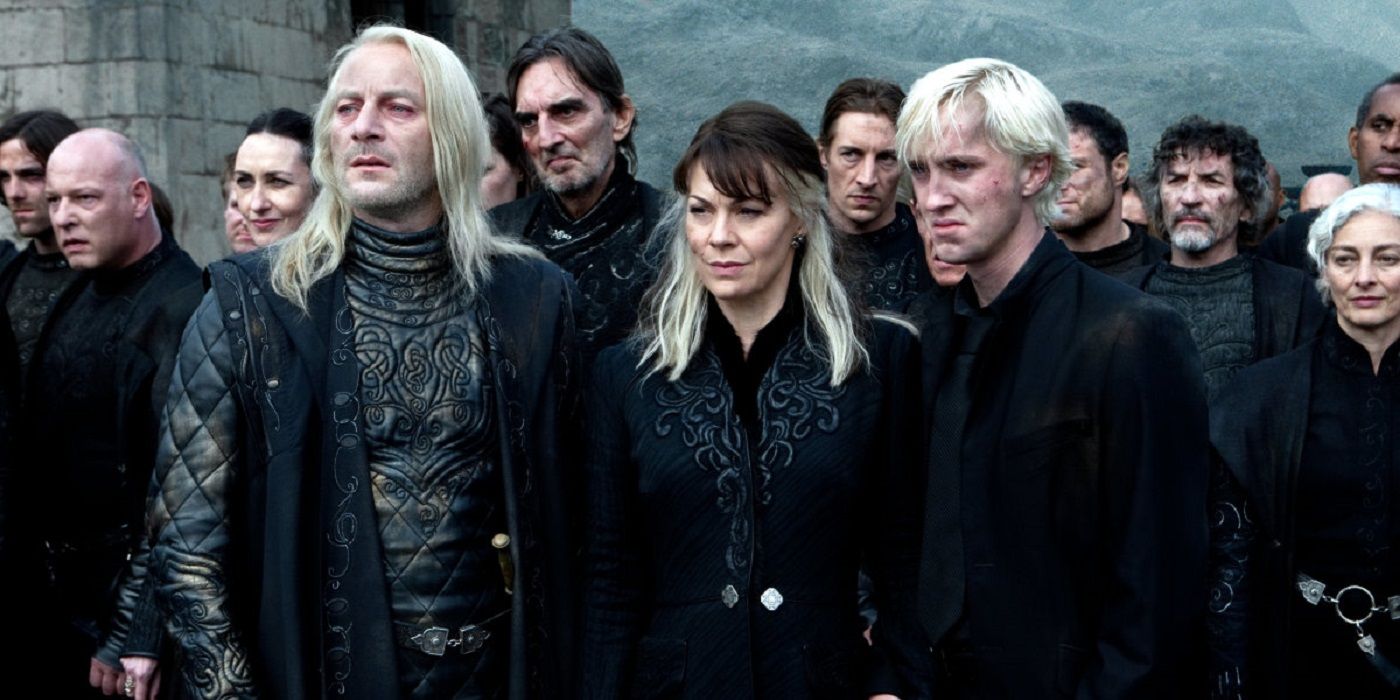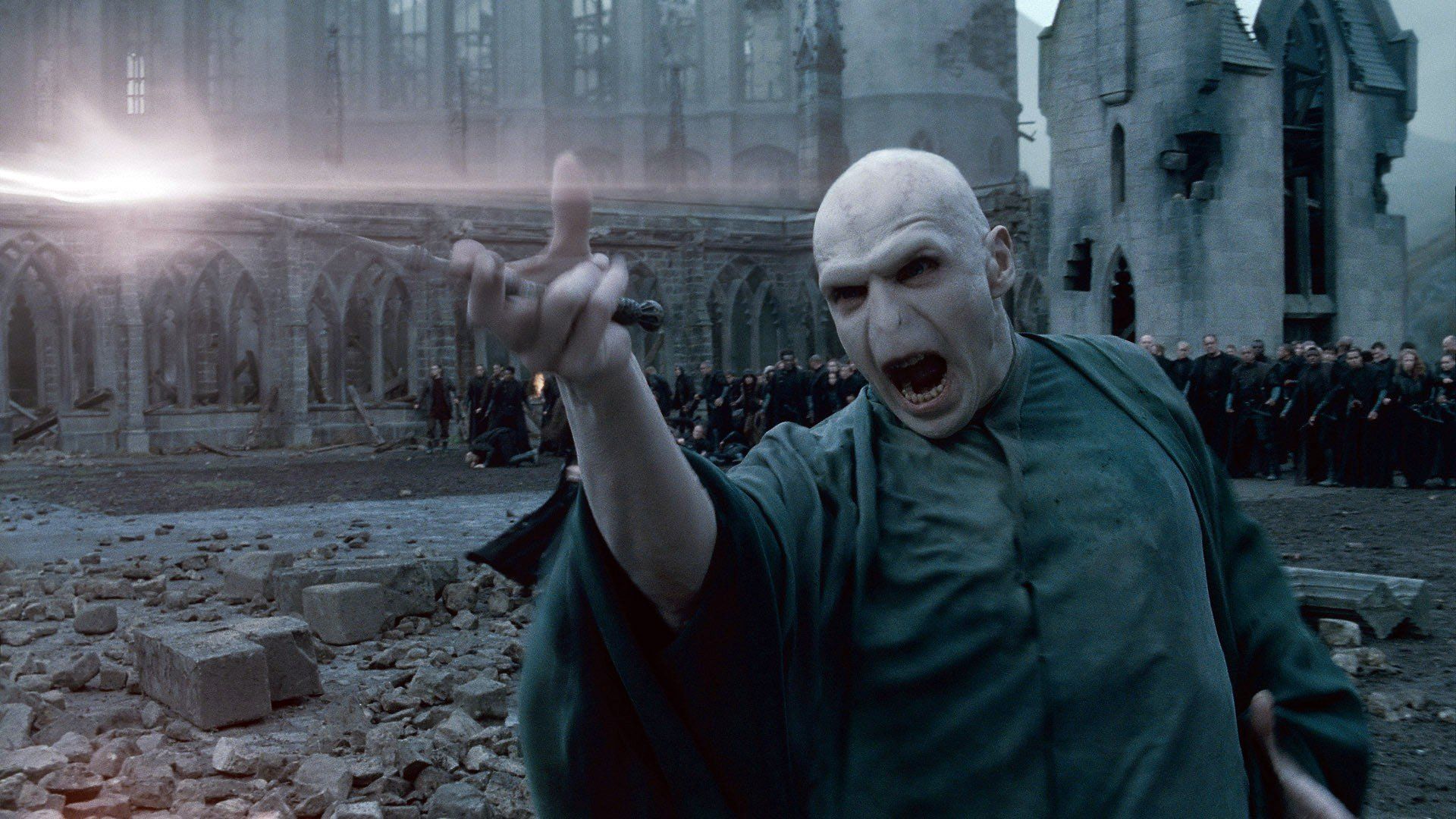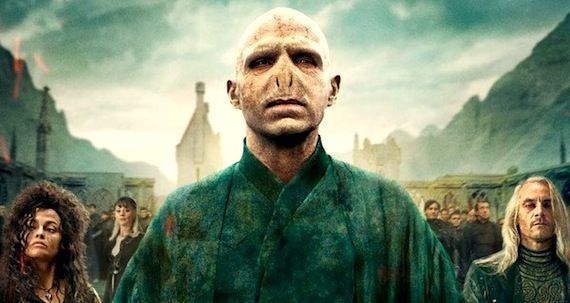While the Harry Potter franchise saw the downfall of Lord Voldemort, the films could have looked differently had he used Felix Felicis, also known as Liquid Luck. First shown in Harry Potter and the Half-Blood Prince, Liquid Luck is awarded to Harry by Professor Slughorn after he successfully brews a Draught of Living Death potion in class. Harry is then shown using the potion to obtain an uncorrupted memory from Slughorn, in which Harry learns that Slughorn had told a young Tom Riddle, later Voldemort, about Horcruxes.
Liquid Luck causes those who drink it to have a period of good luck, depending on how much the user drinks at a time. The results of Liquid Luck grant a high likelihood of succeeding in any endeavor after drinking the potion, with those who have taken it experiencing a high level of confidence. Additionally, Liquid Luck also heightens a user's ability to easily navigate difficult situations, making them highly adaptable. An important aspect of Liquid Luck to remember is that it doesn't change the user's skill set, nor does it grant extra powers. Liquid Luck also is no match for several powerful enchantments and over-reliance results in overconfidence and recklessness.
Given that Liquid Luck cannot magically give its user more powers, it can be easy to see why the potion could have potentially been so risky in the hands of Voldemort, the most dangerous wizard of all time. There are numerous points throughout the franchise where drinking some Liquid Luck could have resulted in Voldemort's success. While some situations might not have worked in Voldemort's favor following a drink of Liquid Luck, such as his spell rebounding from Lily Potter, some could have made a drastic difference.
The Philosophers Stone Would Not Have Been Destroyed
In Harry Potter and the Philosopher's Stone, Harry becomes convinced that Professor Snape is after the Philosopher's Stone and is determined to catch him. To do so, Harry, Ron, and Hermione must navigate their way through several dangerous obstacles; in which Harry then discovers that Professor Quirrell is actually after the stone so that he can return a weakened Voldemort (who lives on the back of his head) to his bodily form. If Voldemort had relied on some Liquid Luck, his attempts to coerce a young and potentially naive Harry into giving him the Philosopher's Stone might have worked, meaning Dumbledore would never have had to destroy it at the end of the first Harry Potter movie.
Only Cedric Would Have Traveled Through The Portkey
While this isn't precisely what Voldemort had in mind when enchanting the Triwizard Cup with a portkey in Harry Potter and the Goblet of Fire, it is probably the outcome that would have worked the best. If Voldemort had been given some Liquid Luck by Wormtail while anticipating the arrival of Harry, this could have resulted in Cedric beating Harry in the final challenge of the Triwizard Tournament, sending him to the graveyard by himself. Voldemort was never going to be able to defeat Harry at the graveyard. His failure only led to Harry spreading news of his return quicker and made the wizard he feared the most, Dumbledore, more vigilant, foiling his initial plans.
The Prophecy Record Would Not Have Been Destroyed
In Harry Potter and the Order of the Phoenix, Voldemort does everything to get the prophecy record, which speaks of his defeat. Finally, after several failures, he realizes only himself or Harry can access the prophecy and devises a plan in which Harry would feel he has to go to the Ministry of Magic. Again, some Liquid Luck usage by Voldemort would have prevented such a significant asset from being destroyed by Harry and may have even allowed him to have obtained the prophecy record himself. If this had happened, Voldemort could have rewritten entirely the prophecy by going against what is foretold, making it one of the most dangerous objects he could have gotten his hands on.
Dumbledore Would Not Have Arrived At The Ministry of Magic
On the same night that the prophecy record is destroyed, Dumbledore appears at the Ministry of Magic to aid Harry against Voldemort. It's been emphasized throughout the franchise that Dumbledore was the only wizard that Voldemort feared because they are both similar in skill sets. Dumbledore's arrival ruined one of his chances to defeat Harry, who was already weak from the grief of the death of Sirius Black. If Voldemort had used Liquid Luck, Dumbledore might have gotten there too late or potentially have never arrived at all.
Ollivander Would Have Told Voldemort The Truth Straight Away
In Harry Potter and the Deathly Hallows: Part 1, it is learned that Voldemort has taken the wand shop owner, Ollivander, hostage to know why his wand doesn't work well against Harry's. Ollivander lies and tells Voldemort that it is due to the similarities between the two wands rather than the simple fact that he doesn't know. This causes Voldemort to borrow Lucius Malfoy's wand to go into the Battle of the Seven Potters, which results in him being unable to defeat Harry and Malfoy's wand shattering. If Voldemort had some Liquid Luck, he could have gotten Ollivander to tell him the truth straight away, leading him straight onto the path of the Elder Wand in Harry Potter without the unnecessary distractions.
Narcissa Wouldn't Have Checked On Harry
After Voldemort seemingly kills Harry in the Forbidden Forest in Harry Potter and the Deathly Hallows: Part 2, Voldemort orders one of his comrades to check if he is still alive. This prompts Narcissa Malfoy to go over and check; however, she is dishonest in her findings. Narcissa only cares about whether her son, Malfoy, is alive, and she takes advantage of the fact that Harry is still alive to find out and afterward declares Harry dead to Voldemort. If another Death Eater had gone instead of her, the outcome would have been very different, and Voldemort would have been able to kill Harry once and for all. Liquid Luck would have been able to aid Voldemort in his decision-making, potentially making him remember the other times that the Malfoy family had betrayed his trust.
Voldemort Would Have Given Up On The Elder Wand
Throughout Deathly Hallows: Part 2, the Elder Wand is shown to be disinterested in Voldemort several times. After believing that it is due to the wand's allegiance to Snape after he killed Dumbledore, he then kills Snape, believes it is now loyal to him, and proceeds to hunt down Harry. However, if Voldemort had drunk some Liquid Luck, he may have gotten a feeling that the Elder Wand wasn't the right weapon to use and instead found another. Or, perhaps Voldemort would have learned that Draco disarmed Dumbledore the night he died, and Harry then disarmed Draco, making the Elder Wand Harry's instead. The Elder Wand's disloyalty ultimately brings him to his demise in the end; switching it out could have seen a very different result for the Battle of Hogwarts.
Why Voldemort Didn't Use Liquid Luck
Regardless of all the different outcomes that Liquid Luck could have provided Voldemort, he never uses it. While there could be several reasons he didn't, it's mainly because he is a maniacal tyrant. Throughout the Harry Potter movies, Voldemort needed to be in control of everyone and everything, and anything else defeating Harry beside his own wand, skill, and magic would have never been sufficient. Voldemort needed to prove to everyone in Harry Potter that he was the most powerful wizard ever to live, therefore would never have relied on a potion such as Liquid Luck to help him to achieve that. Voldemort's own arrogance was the primary cause of his failure.

